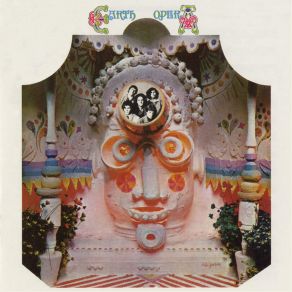Earth Opera
Wikimp3 information about the music of Earth Opera. On our website we have 2 albums and 4 collections of artist Earth Opera. You can find useful information and download songs of this artist. We also know that Earth Opera represents Rock genres.
Biography
[Edit]For a time in the mid- to late '60s, it seemed as though Boston might become the East Coast's answer to San Francisco — it never happened, but if it had, Earth Opera had as good a shot as any of being the East Coast answer to the Grateful Dead. Spawned out of the early- to mid-'60s folk boom, Earth Opera's core was comprised of Peter Rowan, a former bluegrass player (and Bill Monroe alumnus) whose proficiency on guitar and mandolin was soon matched by his songwriting; and David Grisman, a mandolin virtuoso of no small talent who had played with a various younger ensembles, including Siegel, Grisman, Rose & Lewinger. By the mid-'60s, even the most serious and dedicated of urban folk players, attuned and attached to younger collegiate audiences, were getting caught up in the changes being wrought in music from across the Atlantic and the West Coast, which had yielded such efforts as the ineptly named bluegrass Beatles effort Beatle Country by the Charles River Valley Boys, and Wheatstraw Suite by the Dillards. In late 1967, Rowan and Grisman made the jump across the psychedelic chasm opened by the Beatles et. al from their folk perch, in the guise of Earth Opera. They were joined by John Nagy on bass, Paul Dillon, and Bill Stevenson on keyboards and vibraphone, and began generating music that was closer in spirit to the spacier parts of Anthem of the Sun than to Bill Monroe, though they didn't leave bluegrass behind entirely. The group was signed to Elektra Records which, at the time, was enjoying success with its first two rock signings, the Doors and Love and rapidly expanding into the more advanced forms of rock music. Their self-titled debut album, produced by Grisman's ex-bandmate Peter Siegel, and including veteran drummer (and Mothers of Invention alumnus) Billy Mundi on drums, was as spaced-out a record as Elektra had issued up to that time and, in its mix of folk and psychedelic influences, was reminiscent of the music emanating from San Francisco in the same era. Although their debut never charted, Elektra was willing to record a second LP, entitled The Great American Eagle Tragedy. By that time, they were reduced to a quartet with the departure of Stevenson. Nagy added the cello and mandocello to their sound, and Rowan and Grisman were playing tenor and alto sax, respectively, and there were present such guest players as John Cale (viola), Jack Bonus and Richard Grando on saxes, pianist David Horowitz, pedal steelman Bill Keith, double-bass player Herb Bushler, and Bob Zachary on the triangle. Despite the larger "guest" contingent, the texture of the group's sound was leaner and lighter, and the music was generally more accessible, except for the ten-minute-long title track. The Great American Eagle Tragedy managed to reach number 181 on the national charts, lofted there by the number 97 placement of the group's second single, "Home to You" b/w "Alfie Finney." It's also entirely possible that the album's artwork was a small factor in its slightly better commercial performance by capturing the mood in 1969 — the cover was a collage at the center of which was a parody of the United States Presidential Seal (for those unfamiliar, visible on the reverse of the Kennedy half-dollar coin) with a skull-like death's head formed by modified component parts. The group had seen little success outside of Boston, however, and finally broke up later in 1969. Nagy went on to become a top recording engineer and sometime session musician, while Grisman and Rowan headed west and re-established themselves much more profitably on that coast — both later turned up in played in Jerry Garcia's short-lived bluegrass band Old and in the Way, with Grisman finally reaching a wider audience of rock fans when he played on the Grateful Dead's American Beauty album. Rowan joined the Blues Project offshoot band Seatrain in 1970, just in time to play on their second LP and the single "13 Questions," before forming Muleskinner with Clarence White, Grisman and Seatrain alumnus Richard Greene. Rowan later became a solo recording artist, while Grisman formed a new group, the David Grisman Quartet, and popularized a hybrid of bluegrass, jazz, and folk known as "dawg music." He also began writing film scores in the '70s, initially taking advantage of the public's association — ever since Bonnie & Clyde — between bluegrass music, period crime films, and car chases, by composing the music for such movies as Big Bad Mama and Eat My Dust. In 2002, both of Earth Opera's LPs were reissued on CD by Wounded Bird Records. Their songs have also been included in anthologies devoted to the so-called "Bosstown Sound," and Elektra Records founder Jac Holzman listed them among the late-'60s acts on his label of which he was proud, in his book Follow the Music.
Title: Earth Opera
Artist: Earth Opera
Genre: Rock, Folk Rock, Pop, Songwriter/Lyricist, Psychedelic
Collections
Title: The Boston Sound: 1968 Revisited
Genre: Rock
Title: '60s Psychedelic Essentials (CD2)
Genre: Hip Hop/R&B, Soul, Rock, Punk Rock, Pop






